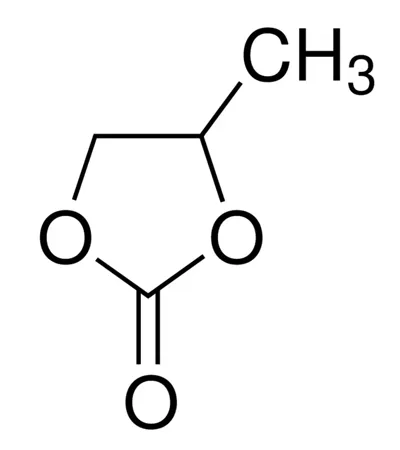Propylene carbonates (PC) are the multifunctional organic solvents used for solvency and dielectric constant in lithium-ion batteries. It is famous for improving the stability, capacity retention, and general performance of all batteries, making it ideal as a constituent of modern energy storage systems solutions. It also exploits the formation of a Solid Electrolyte Interphase (SEI) layer, which is critical for prolonging the lifecycle of a battery; increasing efficiency in terms of charging /discharging, and providing consistency over time.
Being a polar solvent, Propylene Carbonate supports rapid ion transport and the conductivity moment of the electrolytes. Its high flash point and low viscosity make it suitable for use in applications that need both safety and efficiency. Propylene Carbonate is used jointly with other solvents to maximize the overall performance of lithium-ion batteries, especially in energy storage and vehicles as well as diverse consumer electronics.








